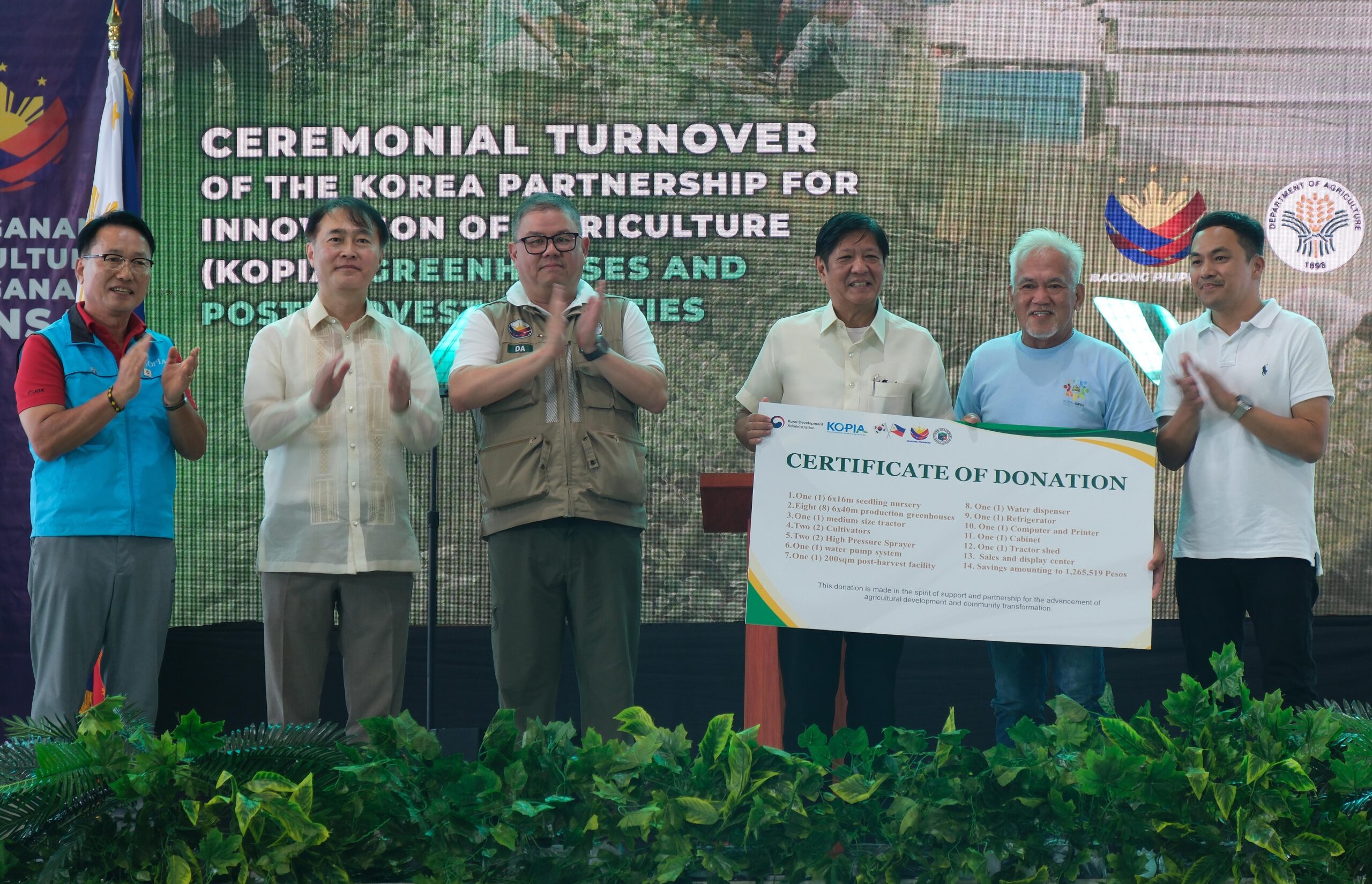
President Ferdinand Marcos, Jr. and Agriculture Secretary Francisco P. Tiu Laurel, Jr. led the inauguration of a South Korea-backed greenhouse and post-harvest facility in Lucban, Quezon, another step in government’s drive to modernize agriculture and build resilience against climate change.
The Lucban facility is just one of 20 greenhouses that have been established with help from the South Korean government across pilot villages in Quezon, Laguna and Nueva Ecija.
President Marcos said the turnover by Korea Partnership for Innovation of Agriculture (KOPIA) of the greenhouses and postharvest facilities “open a new chapter in our agricultural sector—one rooted in partnership, driven by innovation, and aimed at achieving food security for our nation.”
Sec. Tiu Laurel also thanked KOPIA for helping the Bureau of Plant Industry (BPI) and local government of Lucban bring the project to fruition. He said the project underscores collaboration as a crucial step towards uplifting the country’s farming communities.
“This greenhouse represents more than just infrastructure; it symbolizes innovation, hope, and the power of collaboration,” Sec. Tiu Laurel said. “It reflects our shared vision of sustainable farming that adapts to the evolving needs of our agricultural sector.”
The agri chief noted the severe impact of climate change on agriculture, including unpredictable weather patterns, disruption of planting schedules due to El Niño, and increasing prevalence of pests. He said adapting modern farming technologies, like greenhouse cultivation, is key to ensuring food security despite these environmental challenges.
The new facilities, made possible with the help of KOPIA, introduce advanced farming practices to local farmers, particularly in protective cultivation. This method allows for year-round crop production, which is critical in maintaining stable food supplies amidst the unpredictable climate.
“This initiative marks a significant step towards modernizing Philippine agriculture,” Tiu Laurel noted, adding that the Department of Agriculture continues to push for innovations that increase agricultural production and improve farmers’ incomes.
In line with the vision set by President Marcos, Jr. when he served as DA Secretary, Tiu Laurel highlighted government’s commitment to strengthening agricultural systems and supporting small-scale farmers, who are among the most vulnerable to climate change. “Our goal is not only to ensure food security but also to build resilient farming systems that empower our farmers,” he said. ###













